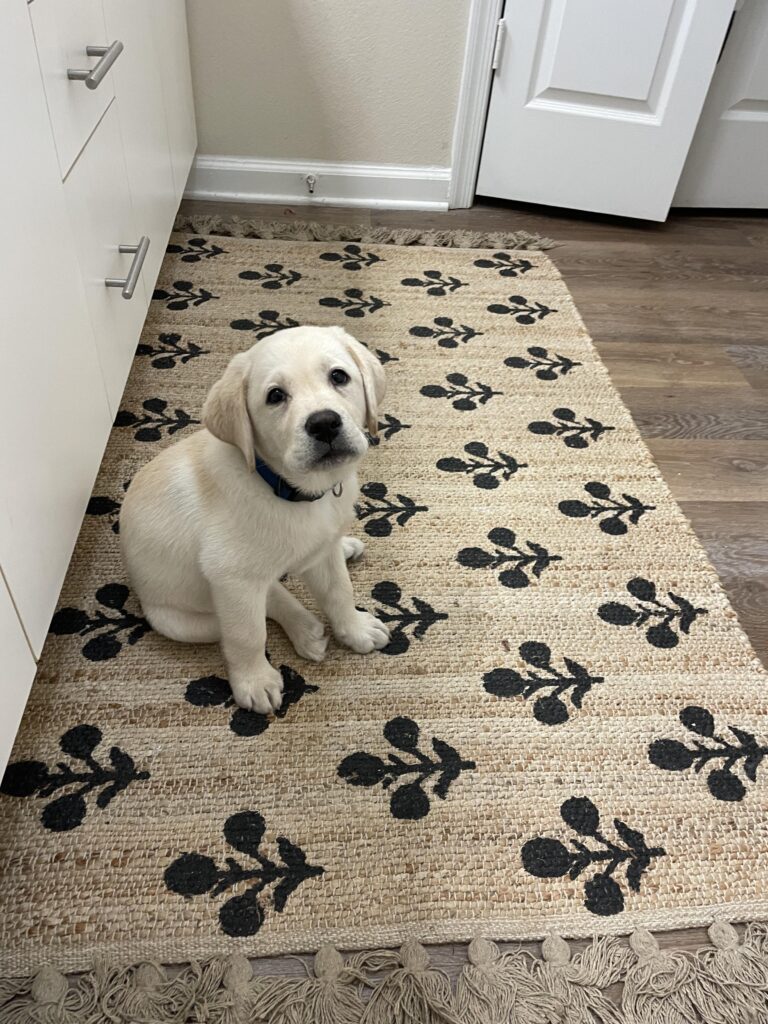How to Train Your Labrador Like a Pro: Tips and Tricks
Labrador Retrievers are known for their friendly and obedient nature, but proper training is essential to fully harness their potential. Whether you’re a new dog owner or looking to refine your Labrador’s behavior, these expert tips will help you train your Labrador like a pro.
Understanding Your Labrador’s Behavior
Before diving into training techniques, it’s important to understand Labrador behavior. Labradors are highly intelligent, energetic, and eager to please, making them perfect candidates for training. They are also social dogs that thrive on interaction and attention.

Start with Basic Commands
Begin by teaching your Labrador the basic commands like “sit,” “stay,” “come,” and “down.” These commands lay the foundation for more advanced training. Keep training sessions short and focused to hold your dog’s attention. Reward-based training works best, so use treats or verbal praise to reinforce good behavior.
Socialization is Key
Labradors are social animals that need early socialization to become well-rounded adults. Expose your puppy to a variety of people, other animals, and environments. This prevents behavioral issues like fear and aggression later in life.
Use Positive Reinforcement
Positive reinforcement is one of the most effective ways to train your Labrador. Instead of punishing bad behavior, reward good behavior immediately. Labradors respond well to treats, toys, and praise. The key is consistency—reward your dog every time they follow a command correctly.
Focus on Leash Training
Labradors are active dogs, so proper leash training is essential. Teach your dog to walk beside you calmly on a leash without pulling. Start indoors or in a quiet area before gradually moving to more distracting environments. Always reward your dog for walking at your side without pulling.
Crate Training for a Calm Labrador
Crate training is another valuable tool when training your Labrador. A crate gives your dog a safe space and helps with housebreaking. Make sure the crate is comfortable, and never use it as a form of punishment. Over time, your Labrador will see the crate as their personal haven.
Be Patient and Consistent
Training a Labrador takes time and patience. Consistency is key—always use the same commands and hand signals to avoid confusing your dog. Remember that Labradors are quick learners, but repetition and persistence are required to reinforce positive behaviors.
Exercise is Crucial for Mental Stimulation
Labradors have boundless energy, and without adequate exercise, they can become bored and destructive. Incorporate physical activities like fetch, swimming, or long walks into your training routine. Regular exercise keeps your Labrador mentally stimulated and improves focus during training.
Advanced Training and Tricks
Once your Labrador has mastered the basics, you can move on to more advanced training and tricks. Teach your dog to fetch specific items, open doors, or perform agility exercises. Advanced training keeps your dog mentally sharp and strengthens the bond between you and your pet.
Consistency is Key to Success
Consistency is crucial throughout the training process. Labradors respond best when commands, routines, and expectations remain the same. Regular training sessions and reinforcement will help your Labrador become a well-behaved, happy companion.
Final Thoughts
Training your Labrador like a pro is achievable with the right techniques and a bit of patience. Focus on positive reinforcement, consistency, and plenty of socialization. With these tips, your Labrador will be a well-trained and joyful part of your family.
Dealing with Behavioral Issues
Even with proper training, Labradors can develop behavioral issues such as excessive barking, chewing, or digging. These behaviors often stem from boredom or lack of exercise. To prevent these issues, ensure your dog gets plenty of mental and physical stimulation daily. If problems persist, consider consulting a professional trainer to address specific challenges.
Training Older Labradors
While it’s best to start training early, older Labradors can also learn new commands and behaviors. Patience is even more important when training an older dog, as they may have ingrained habits. Break down new commands into small steps and reinforce them with plenty of rewards. Older dogs may take longer to adjust, but with consistency, they can learn just as effectively as puppies.

Incorporating Fun into Training
Labradors are playful by nature, so incorporate games and fun activities into their training. Use interactive toys or teach them to play fetch while reinforcing commands. This not only keeps your dog engaged but also strengthens the bond between you. By making training enjoyable, your Labrador will look forward to sessions and be more eager to learn.
Training for Special Purposes
Labradors are often used as service dogs, therapy dogs, or hunting companions due to their intelligence and temperament. If you’re interested in training your Labrador for a specific purpose, such as therapy work, you’ll need to focus on specialized skills. These include obedience, calmness in public spaces, and the ability to perform specific tasks. Consider enrolling your Labrador in specialized training programs to refine these skills.
Building a Strong Relationship
Training isn’t just about commands—it’s about building trust and a strong relationship with your Labrador. The more time you spend working with your dog, the more connected you’ll feel. Labradors are loyal companions, and through training, you’ll develop a deeper understanding of their needs, behaviors, and personality.
Conclusion: A Well-Trained Labrador Is a Happy Labrador
Training your Labrador not only ensures good behavior but also enriches their life. By following these expert tips, you can train your Labrador like a pro, ensuring they are well-behaved, healthy, and happy. Always use positive reinforcement, keep sessions fun, and maintain consistency. In return, you’ll have a loving, obedient companion for years to come.